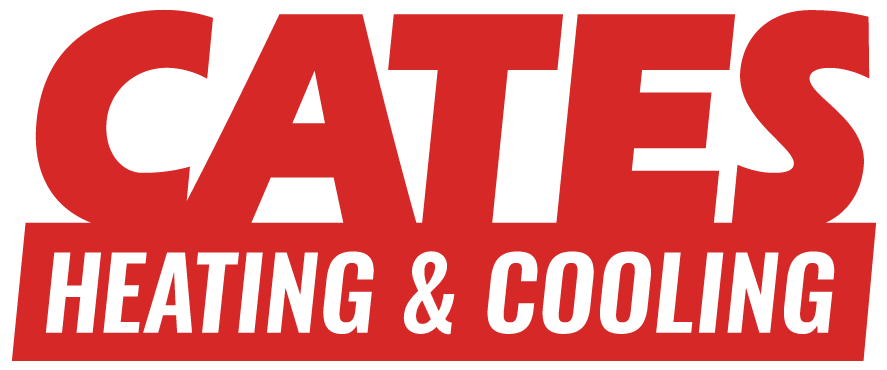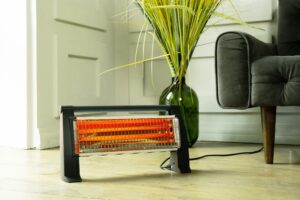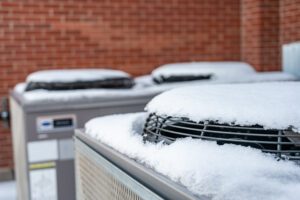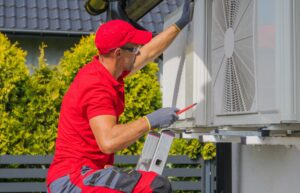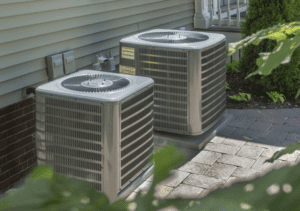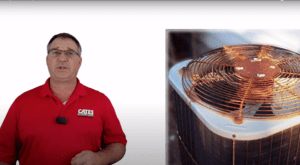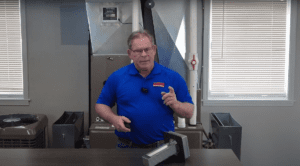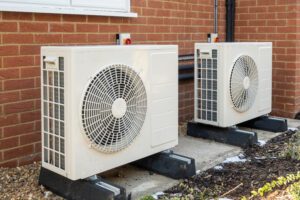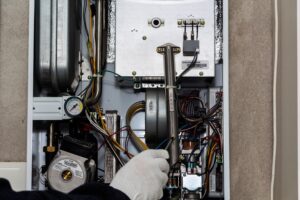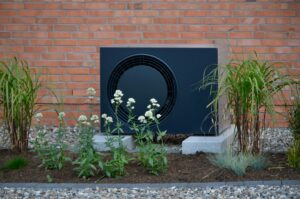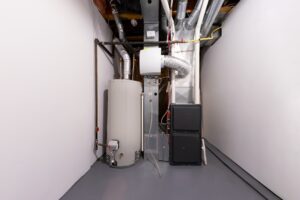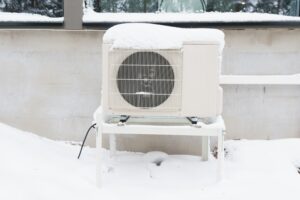As a first-time homeowner, you may not be familiar with all the maintenance tasks that need to be performed on your home. One important system to keep an eye on is your HVAC system, which requires regular maintenance to run smoothly and efficiently. With the summer heat starting to creep in, it’s time to check your HVAC system to ensure your air conditioning will last through the hot weather.
Proper HVAC maintenance can prolong the life of your air conditioner and prevent future repairs that can quickly become expensive. Fortunately, there are many HVAC tips for new homeowners to consider so the heat doesn’t ruin their summertime fun.
1. Learn All the Important Details About Your HVAC Unit
If you just bought a home, you’ll want to familiarize yourself with systems that control comfort levels, like the HVAC system, as soon as possible. Once you know how exactly your new home is cooled and heated, you’ll be a lot more prepared in case of an emergency repair.
Some important details to learn about your HVAC unit include:
- Type: There are a range of HVAC systems available on the market today, including mini-split systems, boilers, and heat pumps, as well as central air or forced air You may also have add-on systems, like air purifiers and dehumidifiers. Knowing which system type you have will help you understand what maintenance is required.
- Fuel Requirements: Depending on what type of HVAC system is in your home, its fuel requirements may be different. You’ll want to know whether your system runs on oil, electricity, propane, or natural gas.
- Age: If your home is over ten years old, the HVAC system may also be old. Older systems are more likely to give you a lot of issues and may need more repairs in the short term.
- Efficiency Rating: Look at the Seasonal Energy Efficiency Ratio (SEER), the Annual Fuel Utilization Efficiency (AFUE), and the Heating Seasonal Performance Factor (HSPF) to better understand how energy efficient your HVAC system is.
- Warranty: If there is still a valid warranty for your HVAC system, you’ll want to make sure you understand the terms and conditions to know whether it can be used for future repairs.
- Maintenance History: If you bought your new home from another owner, you should ask for any previous inspection reports to know the maintenance history of your HVAC system. The reports will show you if there have been any problems in the past with the unit, so you know what to expect maintenance-wise going forward.
Finally, you’ll also want to know what to do in the case of an emergency. Familiarize yourself with the location of your HVAC unit and other parts like shut-off valves, and know how to turn off the power to your system.
2. Check (and Maybe Replace) Air Filters When You Move In
The second HVAC tip for new homeowners is checking and replacing your system’s air filters when needed. A clean air filter can help promote great airflow and prevent dust and dirt from building up in the system.
Never assume that the previous homeowners replaced the air filter before moving out; instead, check the air filter monthly and learn how to change it. A dirty air filter can reduce efficiency and increase wear and tear on your system.
Once you locate your HVAC air filter, replacing it is as simple as pulling the old one out and placing a new one in. The air filter should be replaced every few months depending on how dirty it gets.
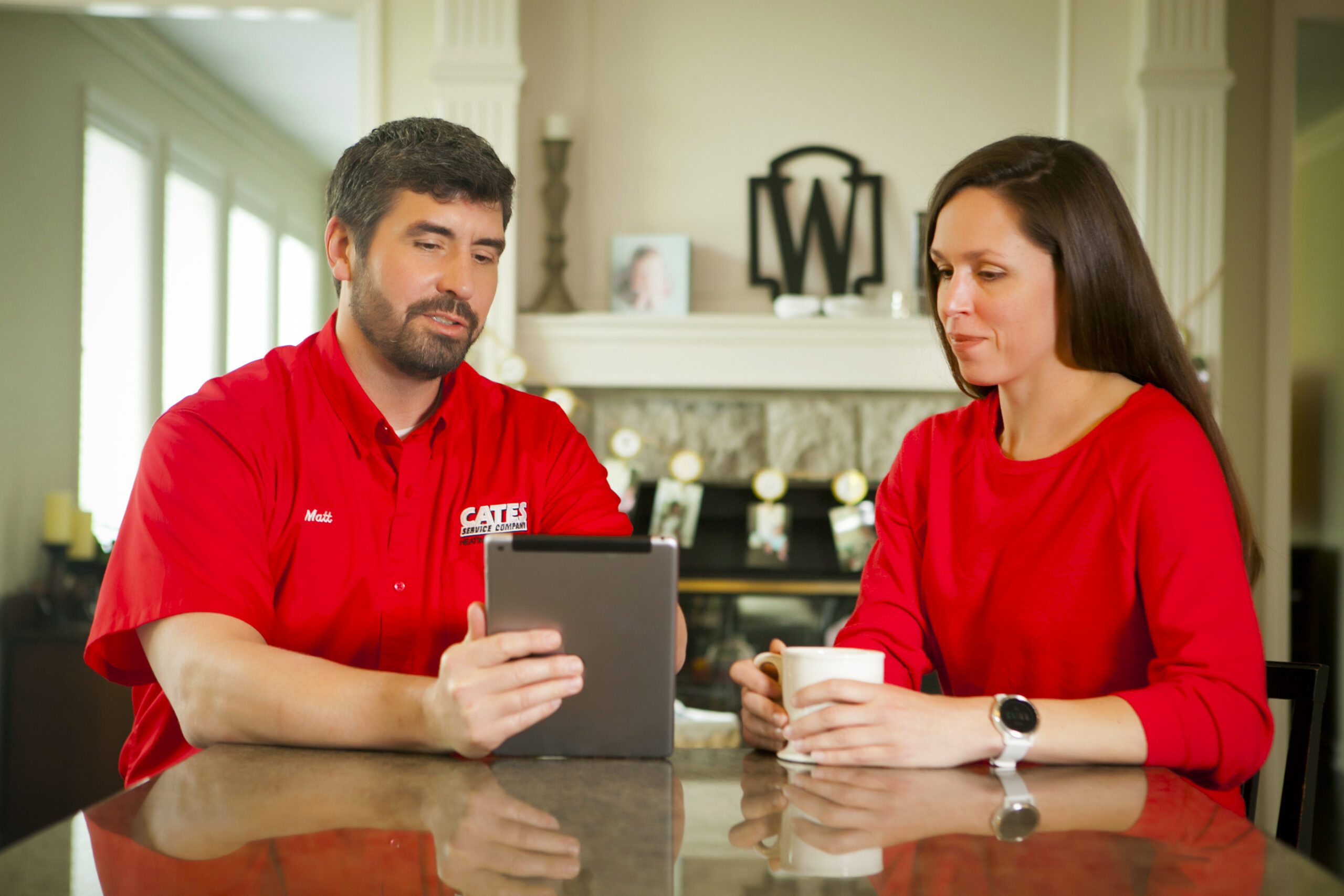
3. Schedule an Inspection and Maintenance Appointment
Have your HVAC system serviced by a professional technician at least once a year—preferably during fall or spring before the weather gets too cold or hot. This will help prolong the life of the system, ensure that all parts are working properly, and confirm that the system is running at peak efficiency. The technician can also catch any potential problems before they become both major and expensive.
Waiting until your HVAC system has a problem to call a technician can quickly backfire and may leave you without comfortable air in your home. With yearly maintenance, an HVAC specialist can ensure that any small problems are taken care of, as well as inform you about the system and offer tips for maintenance and upkeep.
4. Learn About the Unit’s Warranty
Knowing the details of your HVAC system’s warranty, including its period of coverage and the types of repairs it covers, helps you be mindful of what services may already be covered when you need repairs. However, keep in mind that some things can void your warranty, including:
- If the home’s previous owners didn’t hire a licensed specialist to complete an annual maintenance inspection on the HVAC system.
- If the home’s previous owners didn’t hire a professional to complete certain repairs.
- If replacement parts were used during a repair that weren’t approved under warranty.
5. Check Landscaping Around the Outdoor Unit
Keep the area around your outdoor HVAC unit clear of debris and vegetation. This will help ensure proper airflow and ventilation while also preventing your system from overworking. Any trees, shrubs, plants, and other foliage should be kept at least two to three feet away from the HVAC unit. It’s also a good idea to keep toys and furniture, as well as garden tools and supplies, out of the area.
The area around your outdoor unit may also become dirty from leaves, pine needles, or snow accumulation. If any of these things fall on and around the unit, it’s best to clear them away as soon as possible.
6. Check the Ductwork
If your home seems constantly dusty, smells musty, feels humid, or temperatures seem uneven, it might be good to clean and inspect your home’s ductwork for dirt or other leaks. Damaged ductwork can affect the efficiency of your HVAC system by sending air into spaces of your house that you don’t use, as well as lead to higher energy bills.
7. Keep Vents Open
While it may seem that keeping vents shut around your home in rooms you don’t often use can save you money, it’s actually the opposite. Failing to keep your vents open can cause your energy bill to increase, since your HVAC system has to work harder to maintain the comfort levels in your home.
If you only want to heat or cool certain areas in your home, try talking to a professional about setting up different HVAC zones. Otherwise, it’s best to keep vent registers open and not blocked by books, furniture, blankets, or other objects.
8. Learn How to Maximize Efficiency
If you notice a sudden spike in your energy bill, this could indicate that your HVAC system is not running as efficiently as it should be. Fortunately, you can use a programmable thermostat to maximize your system’s efficiency no matter what time of year it is.
Take advantage of the thermostat’s various settings to make your home comfortable when you’re there while dialing back certain settings when you’re asleep or on vacation. If you’re unsure how to program your thermostat, an HVAC professional can show you how to adjust the temperature settings properly.
9. Hire a Professional HVAC Company
Don’t wait until your HVAC system needs a repair to search for a company you can trust; instead, research a trusted HVAC company in advance so your unit can be kept running smoothly all year long.
Our expert HVAC technicians at Cates Heating and Cooling are here for all your inspection and repair needs. Contact us today at 913-888-4470 for Kansas residents and 816-944-1844 for Missouri residents.
